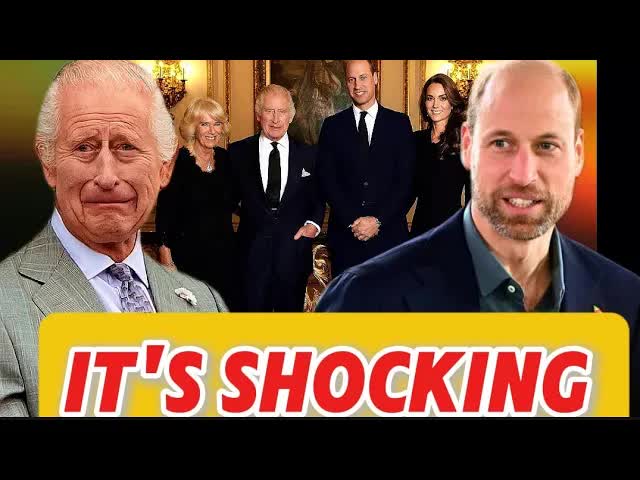The House of Windsor is facing scrutiny like never before, but this time the focus isn’t on royal scandals or personal dramas.
Instead, it’s about the financial dealings of the royal family, particularly concerning the Duchies of Lancaster and Cornwall.
A recent joint investigation by the Times of London and Channel 4 has pulled back the curtain on the complex financial arrangements surrounding these estates, revealing a tangled web of investments and property holdings that raises significant questions about transparency and accountability.
The Duchy of Lancaster, a historic estate that has been under the control of the reigning monarch since 1399, is currently managed by King Charles.
This vast portfolio spans over 45,000 acres across England and Wales, comprising everything from urban developments to rural farms and ancient castles.
While it operates as a private entity, critics argue that its financial dealings should be more transparent, especially given the substantial income it generates outside of the sovereign grant.
Public outrage has surged following revelations that the Duchy of Lancaster appears to prioritize profit over ethical commitments.
For instance, the duchy profits from leasing properties that provide essential public services, including military barracks and council housing.
This has led many to question whether such practices align with the values expected of an institution that benefits from its royal connection.
Prince William, the heir apparent, is also at the center of controversy due to his association with the Duchy of Cornwall.
Established in 1337, this duchy covers over 130,000 acres, predominantly in the southwest of England.
Its diverse holdings range from prime agricultural land to coastal properties, and even extend to the iconic Oval Cricket Ground in London.
Like its counterpart, the Duchy of Cornwall operates with a level of secrecy that has drawn criticism, particularly regarding its financial dealings.
The investigation has revealed troubling patterns within the Duchy of Cornwall, where it has also profited from leasing properties to public services, including schools and hospitals.
Concerns have been raised about whether these entities are charged fair market rates.
Additionally, some tenants have reported living in subpar conditions despite paying high rents, highlighting a disconnect between the royal family’s wealth and the living standards of those renting their properties.
At the heart of the investigation lies a troubling relationship between public services and private profit.
The duchies lease properties to various public entities, which has raised alarms about the potential for exploitation.
Critics argue that the royal family, through these duchies, wields significant power, allowing them to impose unfavorable terms on tenants who have few alternatives.
The scope of the duchies’ holdings extends beyond mere stately homes; they encompass military barracks, schools, and even charities.
The notion that organizations reliant on public donations are paying rent to the royals has sparked accusations of hypocrisy.
Is it ethical for essential services—funded by taxpayers—to contribute to the royal coffers?
Further compounding the scandal are reports of deteriorating living conditions in some residential properties owned by the duchies.
Tenants have described issues such as dampness, mold, and inadequate heating, which starkly contrasts with the luxurious image associated with the royal family.
Critics assert that as major landowners, the duchies have a moral responsibility to ensure safe and habitable housing for all tenants, regardless of their financial situation.
In response to the investigation’s findings, both the Duchy of Lancaster and the Duchy of Cornwall have issued statements defending their practices.
They maintain that they operate independently of the crown and adhere to relevant laws.
However, skeptics argue that these claims lack credibility in light of the evidence presented.
Graham Smith, the CEO of the anti-monarchy group Republic, has been particularly vocal in demanding greater transparency.
He argues that the duchies’ claims of independence are misleading, given that they ultimately benefit the monarchy.
Smith has called for the duchies to be subjected to the Freedom of Information Act, which would allow for public scrutiny of their financial activities.
His passionate advocacy resonates with a growing movement calling for reform within the monarchy.
The ongoing scandal surrounding the Duchies of Lancaster and Cornwall has ignited a wider conversation about the transparency of royal finances.
While the sovereign grant is publicly disclosed, the lack of detailed oversight regarding its expenditure raises concerns.
Many believe that the monarchy, as a public institution, should embrace transparency and accountability as fundamental principles.
As the debate unfolds, the future of the monarchy itself hangs in the balance.
The revelations about the duchies challenge the very relevance and legitimacy of the British monarchy in today’s society, prompting a critical examination of its role and responsibilities in a modern democracy.
